Two Rockets Hit Coalition Forces Base In Northeastern Syria: CENTCOM
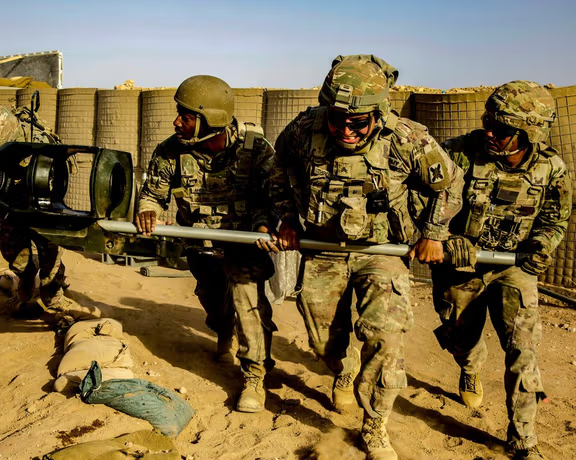
The United States Central Command says two rockets have targeted coalition forces in northeastern Syria, a day after the 3rd anniversary of Qassem Soleimani's death.

The United States Central Command says two rockets have targeted coalition forces in northeastern Syria, a day after the 3rd anniversary of Qassem Soleimani's death.
In a statement on Wednesday, CENTCOM announced that two rockets hit coalition forces at Mission Support Site Conoco.
However, it did not give any further details about who was responsible for firing the rockets.
“The attack resulted in no injuries or damage to the base or coalition property,” the statement read, adding that the “Syrian Democratic Forces (SDF) visited the rocket origin site and found a third unfired rocket.”
No individual or group has yet claimed responsibility for this attack, but Rami Abdul Rahman, Head of the Syrian Observatory for Human Rights emphasized that this happened one day after the third death anniversary of former IRGC Quds Force Commander Qassem Soleimani, saying “pro-Iranian groups” have launched the attack.
The Islamic Republic and its proxy militia groups provide military support to Bashar al-Assad's regime in Syria.
After Qassem Soleimani was killed in a US attack in Baghdad, the top Iranian officials repeatedly threatened revenge for his death.
On January 3, 2020, the US military, on the order of President Donald Trump, killed Soleimani in a drone strike near Baghdad International Airport, saying that he had been "actively developing plans to attack American diplomats and service members in Iraq and throughout the region."
Several hundred American soldiers are stationed in the north and east of Syria as part of the international coalition against ISIS.
In recent years, the coalition bases have been sporadically targeted by rockets or drones.
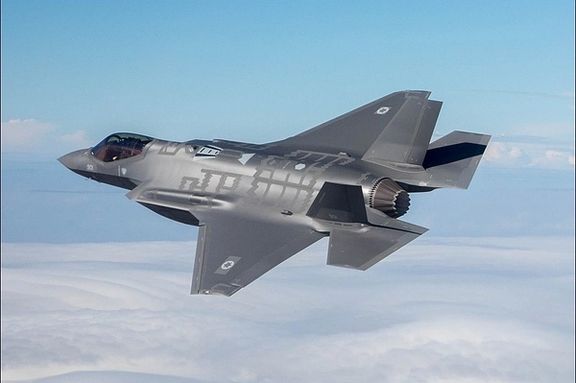
Israel and the United States have conducted air exercises in southern Israel in what an observer said, “could be signal to Iran in the ongoing nuclear standoff.”
Joint drills of Israeli F-35 jets and six US F-15 jets were based out of the Nevatim air base, where Israeli squadron commanders briefed Jerusalem Post military correspondent Jonah Jeremy Bob on training “for hitting targets in ‘deep’ enemy territory.” Bob wrote that the terminology was “often a euphemism for Iran and other countries who do not have immediate borders with Israel” and therefore should be seen a “signal to Iran.”
The return to power of Benjamin Netanyahu, heading a right-wing and pro-Jewish settler coalition, has fed speculation of an Israeli military attack on Iran. While outgoing prime minister Yair Lapid left office claiming Israel was better capable of striking Iran than ever, outgoing defense minister Benny Gantz told graduating air-force personnel late December they should be ready within “two to three years.”
Implying greater urgency, the Jerusalem Post’s report quoted a commander involved in Wednesday’s air drills that Israel’s three squadrons of US-supplied F-35s, even with some planes grounded for technical reasons, were “plenty, along with other Israeli fighter aircraft, to accomplish any mission that would need to be assigned.”
Netanyahu, whose warnings of an imminent Iranian nuclear bomb go back to the 1990s, is keen to stymie efforts by world powers to revive the 2015 Iran nuclear deal, the JCPOA (Joint Comprehensive Plan of Action). The Likud leader strongly backed President Donald Trump pulling the US from the JCPOA and imposing ‘maximum pressure’ sanctions impeding Iran’s access to international markets.
But Netanyahu and his ministers now stress their closeness to the administration of President Joe Biden, which took office pledged to restoring the JCPOA but has been unable to agree terms with Tehran. Netanyahu’s call this week to win ‘global opinion’ against Iran suggests he thinks he can shift Biden in the direction he wants.
According to Israel Hayom, the Israeli newspaper owned by the Adelson family, Antony Blinken, the US Secretary of State, told Eli Cohen, Israel’s foreign minister, by phone January 2 that the JCPOA was finished. But the State Department read-out of the call referred only generally to a “threat from Iran,” did not mention the JCPOA, and stated Blinken had “emphasized the continued US commitment to a two-state solution [for Israel-Palestine] and opposition to policies that endanger its viability.”
US concerns over the likelihood of the Netanyahu government speeding up Jewish settlements in the occupied West Bank are not just that demographic changes under what rule human rights groups have called ‘apartheid,’ doom the ‘two-state solution’ that Washington still formally backs. The recent World Cup in Qatar highlighted popular Arab support for Palestinian rights.
Netanyahu has also said he wants to extend Israel’s Trump-brokered ‘normalization’ agreements with some Arab states, stressing an Iranian threat. But even the United Arab Emirates, which signed a ‘normalization’ agreement with Israel 2020 and has perhaps little to fear from public opinion, stressed at the time its support for a Palestinian state.
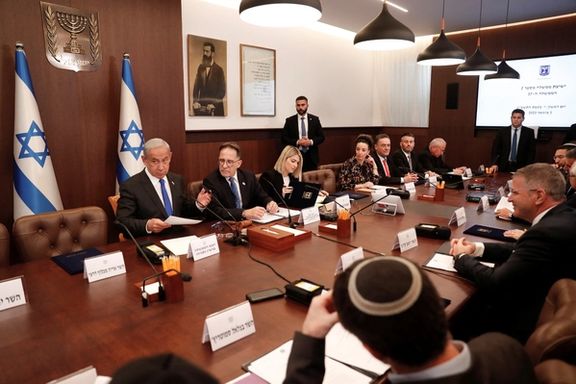
‘Keep your friends closer’
There is also nuance in the US-Israel military relationship. Washington’s 2021 shift of Israel from its European Command (EUCOM0) to CENTCOM, its Middle Eastern command, has been followed by talk from leading US officials of closer military cooperation.
But some analysts pointed out this works in two ways, and may help the US rein Israel in. Newsweek magazine in December quoted a senior US intelligence official that Israel “was coming out of the closet, allowed now to openly associate with the [US] military while at the same time being denied access to another closet.” One third of Hebrew linguists in the US government “work in intelligence collection and analysis specifically related to spying on Israel,” including its nuclear arsenal, Newsweek reported.
“The more that Israel is a credible military opponent of Iran, the very reason for this shake-up, the more that they are also suspect for the very capabilities that we are helping to create and improve,” the official told Newsweek. “This is a case of ‘Keep your enemies close and your friends closer.’”
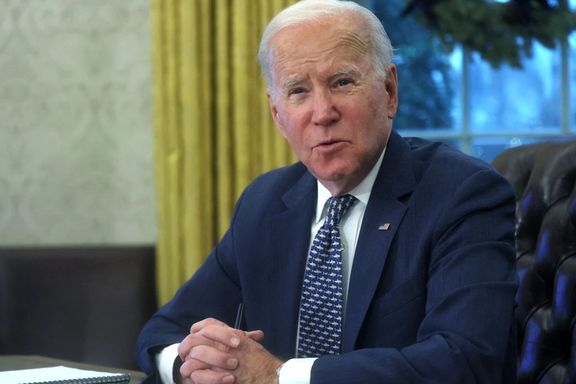
The United States is looking at ways to target Iranian drone production through sanctions and export controls, the White House said on Wednesday.
White House National Security Council spokesperson Adrienne Watson said in a statement Wednesday that Washington is talking to private companies whose parts have been used in production of the drones.
"We are assessing further steps we can take in terms of export controls to restrict Iran’s access to technologies used in drones," read the statement.
According to a Ukrainian intelligence assessment obtained exclusively by CNN, parts made by more than a dozen US and Western companies were found inside a single Iranian drone downed in Ukraine last fall.
The United States has previously imposed sanctions on companies and people it accused of producing or transferring Iranian drones that Russia has used to attack civilian infrastructure in Ukraine.
The Islamic Republic claimed Monday that Ukraine has never submitted any proof of Iranian-made drones being used by Russia in the war, as Russia launched another large attack.
Ukraine said December 13 that it provided Iran with the evidence. "We are not surprised by yet another objection from Iran regarding the supply of weapons to Russia. During the technical meeting, Ukrainian experts provided the Iranians with the sufficient evidence," Foreign Ministry spokesman Oleg Nikolenko said during an interview with Kyiv-based news agency Interfax-Ukraine.
Iran’s decision to supply weapons to Russia has played a major role in the deterioration of its already frayed ties with Europe that has put nuclear talks with Tehran on the back-burner since evidence emerged of the kamikaze drones being launched by Russia in October.

An Iranian regime insider says Iran’s military presence in Syria for many years was directly ordered by Supreme Leader Ali Khamenei.
Ali Shirazi, the former representative of Khamenei in IRGC's Quds Force said Wednesday that “when the Supreme Leader ordered former Quds Force commander Qassem Soleimani to go to Syria, he did not argue. He went and resisted firmly.”
“However, [other] officials including then-President Mahmoud Ahmadinejad did not believe we should go to Syria and fight against ISIS,” he added.
Shirazi’s comments about fighting ISIS contradict the fact that when Iran intervened in the Syrian civil war in 2011 the Islamic State group did not exist yet. Iran sent thousands of fighters and weapons to defend the government of Bashar al-Assad.
ISIS gained a foothold in Syria after the group seized large swaths of territory in Iraq in mid-2014.
Soleimani intervened in Syria as opposition to Assad was gaining momentum. He first played the role of an advisor to the government, but later he spearheaded Iran’s large-scale military intervention in the civil war. Many believe he was responsible for the deaths of thousands of civilians and call him the child-killing commander.
Soleimani was killed in Baghdad along with nine others in 2020 by a drone strike ordered by then-President Donald Trump.
The Qods Force under Soleimani became deeply involved in the conflicts in Syria and Iraq. Trump claimed that the general, who was Iran’s main operative in the Middle East, was killed because he was planning attacks on US troops.

Iran’s government has decided to act against those selling VPNs and circumvention software to people, as a measure to further restrict access to the Internet.
The Judiciary department in collaboration with ministry of communications will take legal action against "unauthorized sellers of the VPNs and circumvention tools," local media reported.
ISNA news website that published the news on Wednesday did not say who made the decision, however; many believe it could have been ordered by the Supreme National Security Council, or one of the intelligence services.
Since the beginning of protests in mid-September, the government has been severely restricting Internet access in general and access to popular social media platforms, such as Instagram, WhatsApp and others.
The government is extremely nervous that people use the Internet and social media to share news and images about protests, possibly motivating a larger segment of the population to join demonstrations.
However, restricting access also hurts internet-based businesses. Reports say up to 10 million people's livelihoods may be adversely affected by government’s Internet access denials and its ban on social media platforms.
This has prevented Internet-based businesses from marketing and selling their products and services. Economists believe it will have alarming repercussions for Iran's economy while the country is suffering from high inflation and a recession.
Officials, including Supreme Leader Ali Khamenei, have repeatedly criticized free access to the internet in recent years, and have been trying to prevent the free flow of information by expanding the "national intranet".
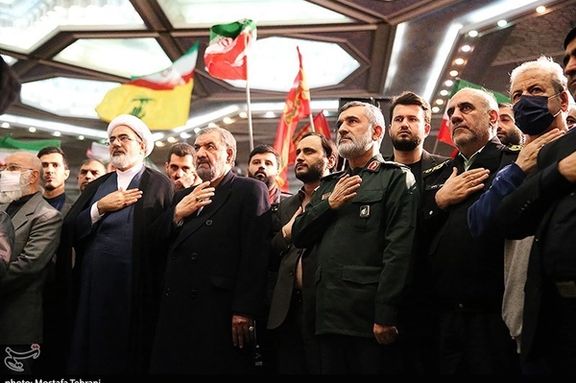
The Iranian Foreign Ministry says the US killing Qassem Soleimani. former commander of IRGC's Quds Force in 2020 failed in bringing Washington its desired outcome.
In a tweet on Tuesday, the foreign ministry claimed Iran continues “to play a decisive role” in the region and the United States’ “footprint in West Asia continues to diminish”.
The tweet was published on the eve of the third anniversary of Soleimani’s killing by the United States.
On January 3, 2020, the US military, on the order of President Donald Trump, killed Soleimani in a drone strike near Baghdad International Airport, saying that he had been "actively developing plans to attack American diplomats and service members in Iraq and throughout the region."
In a Monday statement, the Iranian regime also claimed that Washington conducted the killing of Soleimani with "false claims and pretexts, including under the guise of counter-terrorism" and in "naked violation of the tenets and principles of international law."
Iranian Foreign Minister Hossein Amir-Abdollahian said on Sunday that nearly 60 US officials have been blacklisted by Tehran for their involvement in the assassination of Soleimani.
Iran’s President Ebrahim Raisi and Supreme Leader Ali Khamenei have time and again vowed revenge for the killing of Soleimani.
Raisi in a speech on Tuesday addressed the US saying, “We have not forgotten martyr Soleimani’s blood and will never forget. They [Americans] should know that revenge for Soleimani is certain and his killers…will not have any peaceful sleep.”
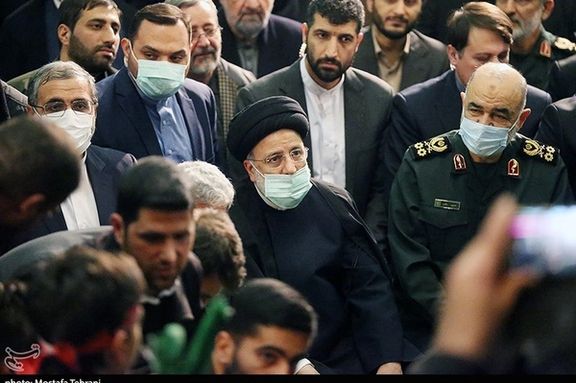
At the same time, many Iranian regime opponents and activists on social media celebrated Soleimani’s killing anniversary, calling it a “Cutlet Day”, after a popular Iranian dish made of ground beef and potatoes. Soleimani’s body was so mutilated in the attack that his detractors came up with the comparison to the meat and potato patties.
Some activists said that if Soleimani was alive he would have ordered a more brutal response to the current protests and would have had no reservations about killing thousands of people. They accused him of playing such a role in past protests and engineering Iran’s bloody military intervention in Syria against anti-Assad rebels, when hundreds of thousands of people were killed, injured and left homeless.
Protesters in Iran burned many banners erected in Soleimani’s honor this week and set fire to several of his statues.
A member of Iranian Revolutionary Guard was charged in August with planning to assassinate John Bolton, the former United States National Security Advisor in what the US Justice Department called “retaliation for the death of Iran’s Islamic Qasem Soleimani”.
Former Secretary of State Mike Pompeo was also told by the Justice Department that he was a second target of the plot.
Soleimani, who was Iran’s top military and intelligence operator outside its borders, was in charge of supporting and organizing militant proxy forces, including the Lebanese Hezbollah and Iraqi Shiite militia groups that have repeatedly attacked US forces.